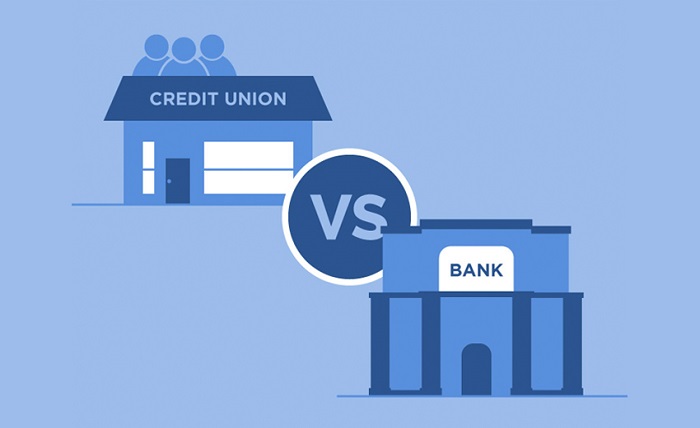Banks and Credit Unions: Refinancing CEBA Loans

The Canada Emergency Business Account (ceba) has been a lifeline for countless small businesses and nonprofit organizations across Canada during the COVID-19 pandemic. However, as the economic landscape continues to evolve, some businesses find themselves exploring CEBA loan refinancing options. In this blog, we’ll delve into how banks and credit unions are helping businesses refinance their CEBA loans, offering flexibility and support during these challenging times.
The CEBA Program Overview
Before we dive into the details of CEBA loan refinancing, it’s essential to understand the CEBA program itself. CEBA was established by the Canadian government as a response to the economic hardships caused by the pandemic. The program offers interest-free loans of up to $60,000 to eligible businesses and nonprofit organizations.
CEBA Loan Forgiveness
One of the most appealing aspects of CEBA is the potential for loan forgiveness. As of my last knowledge update in January 2022, if a business repays 75% of the loan by December 31, 2022, the remaining 25% can be forgiven. This feature has been a significant incentive for businesses to participate in the program.
CEBA Loan Repayment Challenges
While CEBA has undoubtedly provided critical financial support to businesses, some may now be facing challenges when it comes to repaying the loan. The pandemic’s economic impact has been far-reaching, leading to ongoing financial struggles for many. This is where CEBA loan refinancing comes into play, allowing businesses to explore more flexible repayment options.
How Banks and Credit Unions Facilitate CEBA Loan Refinancing
Banks and credit unions have been actively participating in the CEBA program, both in the initial disbursement of loans and now in facilitating refinancing. Here’s how they are helping businesses refinance CEBA loans:
Communication and Guidance:
Banks and credit unions have been proactively reaching out to their CEBA loan clients. They provide information about the loan refinancing process and guide businesses on how to navigate it.
Extending Repayment Periods:
One of the primary ways banks and credit unions are assisting businesses is by offering the option to extend the repayment period for CEBA loans. By extending the repayment term, businesses can reduce their monthly repayment amount, providing much-needed relief for their cash flow.
Revised Repayment Schedules:
Financial institutions are working with businesses to create customized repayment schedules that align with their financial capabilities. This tailored approach acknowledges the unique challenges each business faces.
Interest Rate Adjustments:
In some cases, banks and credit unions are adjusting interest rates to provide businesses with more favorable terms. Lower interest rates can significantly reduce the overall cost of borrowing.
Alternative Financing Options:
In addition to refinancing CEBA loans, financial institutions may present alternative financing options. These could include traditional loans, lines of credit, or other financial products with different terms and conditions. Businesses are encouraged to explore these alternatives and determine which option best aligns with their needs.
Loan Forgiveness Guidance:
Banks and credit unions are also providing guidance on the CEBA loan forgiveness process. They help businesses understand the requirements and deadlines for achieving loan forgiveness and ensure that borrowers are well-informed.
Streamlined Application Process:
For businesses looking to refinance or access additional financing, banks and credit unions often streamline the application process. This simplifies the administrative steps required to secure the necessary funds.
Understanding the Costs and Implications
While CEBA loan refinancing offers much-needed flexibility, it’s crucial for businesses to understand the costs and implications of these options:
Interest Rates:
Consider the interest rates associated with your current CEBA loan and any refinancing options. Lower interest rates can lead to reduced overall borrowing costs.
Loan Terms:
Examine the terms and conditions of the refinanced loan. Longer repayment periods can result in lower monthly payments but may lead to higher overall interest costs.
Loan Forgiveness:
Be aware of the potential for loan forgiveness. If you’re close to meeting the conditions for CEBA loan forgiveness (e.g., repaying 75% of the loan), think carefully before refinancing, as it might disqualify you from this potential benefit.
Eligibility Criteria:
Ensure that you meet the eligibility criteria for any refinancing options or government relief programs you’re considering. Ineligible businesses may face repayment obligations.
Creditworthiness:
Assess your business’s creditworthiness, as it can affect the interest rates and terms you’re offered when seeking traditional bank loans or other financing.
Total Borrowing Costs:
Calculate the total borrowing costs for each option, including both principal and interest. This will give you a clear picture of the financial impact of each choice.
Flexibility:
Consider how flexible each option is in terms of repayment schedules, collateral requirements, and other terms that can affect your business’s ability to meet its financial obligations.
Seek Professional Advice
The decision to refinance your CEBA loan or explore alternative financing options is significant and can impact your business’s financial health. To make an informed decision, it’s advisable to seek professional advice. Financial advisors, accountants, and business consultants can provide valuable insights and guidance tailored to your specific situation.
Conclusion
Banks and credit unions play a crucial role in helping businesses navigate the challenges posed by CEBA loan repayment. By offering options such as extending repayment periods, revising repayment schedules, adjusting interest rates, and providing guidance on loan forgiveness, they are supporting businesses in their journey to financial recovery.
As businesses continue to grapple with the economic consequences of the pandemic, understanding the real costs and implications of CEBA loan refinancing is paramount. The decision to refinance should align with your business’s financial goals and long-term sustainability. Seek professional advice to ensure you make well-informed choices that will help your business thrive in these challenging times. With the support of financial institutions and careful decision-making, businesses can move forward with confidence.




